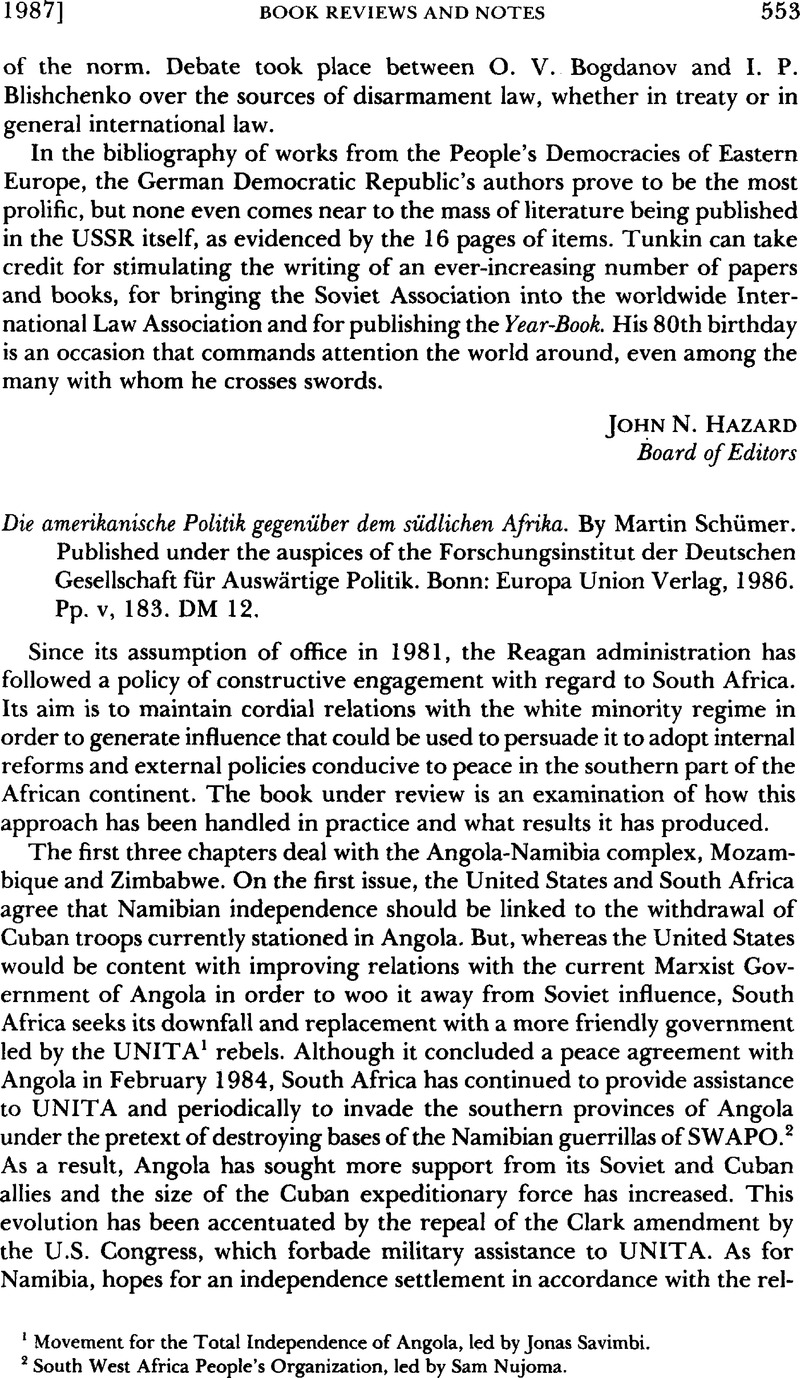No CrossRef data available.
Article contents
Die amerikanische Politik gegenüber dem südlichen Afrika. By Martin Schümer. Published under the auspices of the Forschungsinstitut der Deutschen Gesellschaft für Auswärtige Politik. Bonn: Europa Union Verlag, 1986. Pp. v, 183. DM 12.
Published online by Cambridge University Press: 27 February 2017
Abstract

- Type
- Book Reviews and Notes
- Information
- Copyright
- Copyright © American Society of International Law 1987
References
1 Movement for the Total Independence of Angola, led by Jonas Savimbi.
2 South West Africa People’s Organization, led by Sam Nujoma.
3 SC Res. 435 (Sept. 29, 1978), which established the UN Transition Assistance Group for Namibia.
4 Mozambican National Resistance. This movement appears to lack strong central leadership and has no clear policy beyond the overthrow of the current Government.
5 As a result of the speech made by a cabinet minister at the July 4 reception in the presence of former President Carter, the U.S. ambassador was recalled. See ECONOMIST, July 19–25, 1986, at 35. Economic assistance was later canceled.
6 The African National Congress, a multiracial movement whose titular leader is the imprisoned Nelson Mandela and whose acting leader is Oliver Tambo.
7 See Economist, June 21–27, 1986, at 45–46.


